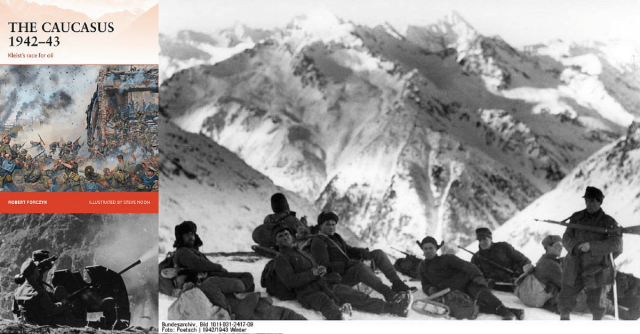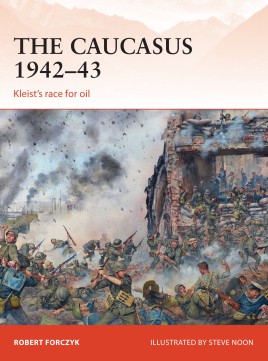Stand up and be applauded Osprey….again!
First impressions of this book: WOW!The book is great, the layout is great, the artwork is fantastic. I’m never disappointed with an Opsrey book, well very rarely anyway.This was no exception, in fact I’d go as far as to say that Steve Noon’s artwork in this book is above and beyond ‘The call of Duty’Impressive doesn’t cut it at all when it comes to the quality of his work and here his expertise in capturing ‘the moment’ is simply breathtaking.
As always with the Osprey campaign series the book is well laid out in chronological order. It’s easy to follow and understand and with virtually every turn of the page your hit with an impressive photograph or art work to add to the experience. Forczyk’s text and research leaves nothing unturned and by the end of the book you’re a complete scholar. It’s in the usual ‘bitesize’ form that so many of us who are fans of Osprey titles know so well. But here’s the twist, every book is totally different than the last. They are never predictable or boring or a text filled slog. That speaks volumes of the authors and illustrators. Always finding new ways in which to bring us the knowledge fix we all crave so much.
So what of the content itself? What was The Battle of the Caucasus?
It’s been said many a time An army marches on its stomach. Well that may be true, but why march when you can ride in a vehicle? A man may march on his stomach; an army, however, travels on fuel! Petrol or diesel, both have an important ingredient. Oil.It was the same all over the world during WW1 and it was repeated during WW2 and is, sadly, repeated to this day.
The hunt and demand for oil or more importantly who controls it. Without the oil fields nothing moves, the transport is as still as the machines that manufacture the bullets and bombs, for without this precious commodity nothing operates or lives. Without oil the early plastics and bakelite of WW2 would have been non-existent and advancement in technology almost impossible.
Oil would be so precious to each and every country’s war effort they were willing to risk the lives of tens of thousands of men just to bring the dark matter to their shores. In the end hundreds of thousands were to die either protecting the oil fields or in the process of transporting it.
The fight for the oilfields in the Caucasus between Russia and Germany and her allies was to be a blood letting exercise on a huge scale. Hitler, willing to learn from his tactical masterpiece that was Operation Barbarossa, knew that in order for the Nazi war cogs to keep turning he had to secure Russia’s vast oilfields. His Army Group B motoring towards the showdown that was to become Stalingrad was desperately short of fuel and forever becoming isolated. Stretched far away from their supply lines Hitler ordered Kleist’s Army Group B to Maikop and the oilfields of the Caucasus. The area, crisscrossed by rivers and mountain outcrops spread between The Black Sea to the shores of the Caspian Sea. It lay on the very border of Asia itself and was the key to success or failure on the Eastern Front.
Confident of his tactics and the calibre of his men Hitler poured resources and armour into the region in what he hoped was to be a brief fight ending in an all-conquering race for the prize.
He was to be mistaken.
Disorganisation and confusion reigned from the start and infighting and jostling for superiority from his generals all added to an unwelcome sideshow. However the might of the Nazi war machine pushed on relentlessly. ‘Operation Edelweiss’ was under way but with such a valuable prize at the end the Russians were damned if they were letting anyone walk in and help themselves.
The war dragged on, the casualties built up and armies became bogged down. The cities and towns taken by the Germans in 1942 fell again to the Russians in 1943 and a high stakes game of death and destruction, so familiar to the Eastern Front, was played out again and again and again, the eventual winner being the Russian winter. Again –as familiar and horrific as the fighting itself.
Great Book.
Great Read.
Recommended.
Reviewed by Phil Hodges for War History Online
THE CAUCASUS 1942-1943
Kleist’s Race For Oil.
Robert Forczyk and Steve Moon
Osprey Publishing
ISBN 978-1-4728-0583-6


